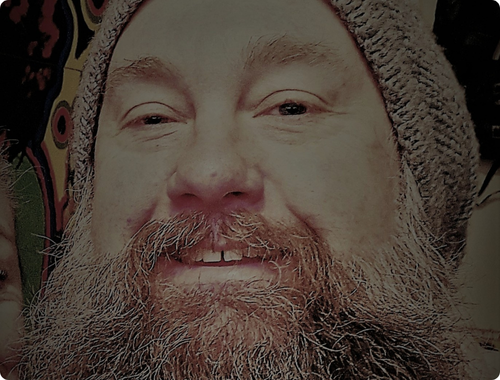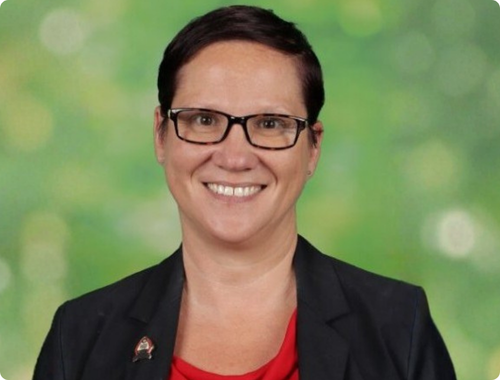Wellbeing for Future Focused Schools Conference
Thursday 3 and Friday 4 September 2026
Melbourne Convention & Exhibition Centre
When teachers thrive, students flourish. The Wellbeing stream focuses on supporting the mental health, emotional resilience, and overall wellbeing of educators—because a healthy school culture starts with those who lead it. This conference brings together school leaders, wellbeing coordinators, counsellors, and educators to explore practical strategies for building sustainable wellbeing programs that support both staff and students.
Focus Areas:
1. Teacher Wellbeing & Burnout Prevention
Strategies for managing workload, stress, and emotional fatigue
Creating a culture of care and psychological safety in schools
Supporting teachers to prioritise their own wellbeing without guilt
2. Student Wellbeing & Emotional Intelligence
Building resilience, empathy, and self-regulation in students
Embedding social-emotional learning (SEL) into everyday practice
Supporting students through anxiety, trauma, and mental health challenges
3. Whole-School Wellbeing Programs
Designing and updating wellbeing frameworks that reflect current needs
Leadership approaches that foster wellbeing across teams
Measuring impact and outcomes of wellbeing initiatives
4. Sharing Stories & Building Connection
Real-world experiences—successes and setbacks—that offer insight and inspiration
Peer-led discussions and collaborative problem-solving
Creating space for reflection, healing, and professional growth
Confident, resilient students perform better academically and socially—but they need role models who are supported, balanced, and well. This stream is about empowering educators to care for themselves, so they can continue to care for others.
Choose from one day or two day tickets. Tickets include Arrival tea/coffee, Morning tea & Buffet lunch, Certificate of Attendance (mapped to APST), attendance at Summit Social, access to The Education Show (the offical Expo of the Summit), Knowledge Centre & Classroom of the Future
THURSDAY 3 SEPTEMBER 2026
*Program subject to change
9:00am
Welcome and Housekeeping
9:10 – 9:40am
Dr Michael Stewart, Retired School Principal, Volunteer Adolescents Mental Health Unit, Sunshine Coast University Hospital
Culture as the Compass: Guiding Wellbeing, Behaviour, Relationships and School Success
School culture shapes every aspect of life within a school community, influencing how individuals think, feel, and interact. A strong and positive culture is built on relationships, guided by vision and values, and expressed through daily behaviours and expectations. Everyone has a role to play in creating and sustaining this culture. This workshop explores how schools can intentionally shape culture to foster wellbeing, strengthen relationships, and drive collective success. Participants will:
Examine the role of positive relationships at the heart of school culture.
Explore how vision and values guide everyday actions and interactions.
Learn strategies to strengthen connection, collaboration, and belonging.
Consider practical approaches to embed wellbeing into school life.
Identify the factors that can damage or undermine a positive school environment.
Discover how culture can be a powerful driver of learning and success.
9:40 – 10:10am
Dr Sonia Cheema, Leadership Coach, Al Taqwa College
Resilience & Adaptability: Preparing Schools for an Uncertain Future
Education is being reshaped by global challenges — pandemics, climate events, rapid technological change, and shifting social dynamics. This session equips school leaders and educators to design resilient, adaptable systems that keep students at the center, no matter what the future holds.
This session provides a roadmap for creating agile, resilient schools that prioritise learning, safety, and wellbeing — no matter the external environment. It offers practical, tested strategies that support educators in building robust systems ready for disruption. Key Takeaways for Participants:
Rethink classroom models to respond to global crises and changing community needs.
Learn how to design hybrid and remote learning systems that maintain continuity and equity.
Explore leadership strategies for building organisational adaptability and future preparedness.
Walk away with crisis-readiness planning templates for curriculum, staff development, and student engagement.
10:10 – 10:30am
Q&A Panel with Dr Michael Stewart & Dr Sonia Cheema to answer questions
10:30 – 11:00am
Morning Tea
11:00 – 11:30am
Session TBC
11:30 – 12:00pm
Kritz and Bianca Sciessere, Co-Founders, The Big Sister Experience
Avoiding Educator Burnout - Practical Strategies for Educators
In the dynamic landscape of education, the demands on educators can often lead to feelings of stress and burnout.
This session aims to empower educators with practical tools and insights to recognise the signs of burnout, understand its underlying causes, and implement proactive measures to maintain their wellbeing. Instead of adding to your workload, what can we take away? We’ll work through effective strategies to prevent burnout and cultivate a sustainable and fulfilling teaching career.
12:00 – 12:30pm
Eric Agyeman, Founder, Legacy Empowerment Group
iBelong: Creating Cultures of Respect, Empathy, and Resilience in Every Classroom
Too many students walk into school feeling excluded, unsupported, or unsure if they belong. When respect, empathy, and resilience aren’t embedded in the culture, bullying and disengagement take their place. Eric shares practical strategies that help schools turn bullying into belonging and doubt into confidence. Drawing from his lived experience as the only African student in his Melbourne classroom and his award-winning programs (iBelong and Boys to Noble Men), Eric shows educators how to embed social-emotional learning (SEL) into daily practice—not as another add-on, but as the foundation for thriving classrooms.
Attendees will walk away with a clear framework for embedding respect, empathy, and resilience in to everyday routines along with practical tools to build student confidence and self-regulation.
12:30 – 1:30pm
Lunch
1:30 – 2:00pm
Q&A Panel including Kritz & Bianca Sciessere & Eric Agyeman to answer questions
2:00 – 2:30pm
Simi Rayat, Global Business Psychologist, The Global Joy Mission
The Global Joy Mission: Empowering Educators and Students to Thrive, Not Just Survive
What if joy wasn’t a reward at the end of a busy school term, but a daily strategy for wellbeing and performance?
In this inspiring and science-backed session, Organisational Psychologist and author of Productivity Joy, Simi Rayat, shares the Global Joy Mission, a movement to equip 5 million people including Educators and students with the tools to thrive by 2030.
Discover the 5Qs Formula, a simple, evidence-based, science-backed daily practice to build emotional regulation, focus and resilience in just five minutes a day. Learn how schools across Australia are embedding these tools into classrooms and how your school can join the national pilot programme to make wellbeing a daily mental fitness habit, not an occasional lesson.
You’ll walk away inspired, equipped and ready to create a culture of calm, confidence and connection in your school community.
2:30 – 3:10pm
Andrew Murray, Former Secondary Principal, Director Lumina Wellbeing Strategy
The Anti 5am Club
The Anti 5am Club challenges the myths that tie success to early starts, perfect mornings, and relentless output. Instead, it equips teachers with practical tools they can use to protect their energy, design days that work for them, and model sustainable wellbeing.
The workshop is grounded in lived experience and research, offering realistic strategies to help educators and school leaders flourish across the whole day. We will also explore "Moral Trauma", something that many teachers have but do not know they have.
3:10 – 3:30pm
Q&A Panel with Simi Rayat & Andrew Murray to answer questions
3:30 – 3:45pm
Ask the Audience: Delegates share the one idea that they will work on next week
4.00 – 5.30pm
Summit Social - a networking event for exhibitors, speakers and delegates.
Friday 4 September 2026
*Program subject to change
9:10 – 9:40am
Yvonne Harvey, Principal of Primary, Heathdale Christian College
Holding Steady: Managing the Classroom When You’re Not at Your Shiny Best
Every teacher has days, or seasons, when energy runs low, emotions feel stretched, or confidence wavers. Yet classrooms still demand calm, clarity, and consistency. This session explores practical strategies for managing student behaviour when you’re feeling vulnerable, depleted, burnt out, or simply not yourself.
Drawing on current research in emotional regulation, teacher wellbeing, and cognitive behaviour therapy, we’ll discuss how to maintain a steady presence in front of students while managing your own stress. Through real classroom examples, participants will learn how to set boundaries, communicate with empathy, and use small resets to regain balance and authority.
Educators will leave with a toolkit for managing both student behaviour and their own wellbeing, ensuring that even on the toughest days, the classroom remains a place of stability, safety, and genuine connection.
9:40 – 10:10am
Craig Wotherspoon, Head of Wellbeing and Engagement, David Scott School
Bridging Wellbeing and Learning: Trauma-Informed, Research-Based Strategies for Educators
Educators across K–12 are increasingly confronted with the reality that students bring the weight of complex life experiences into the classroom. Trauma, substance use, mental health challenges, and disrupted attachments do not just shape behaviour — they profoundly impact learning readiness, engagement, and relationships with teachers. At The David Scott School, a Special Assistance School in Victoria, we support young people aged 15–20 navigating these very challenges. Over time, our Wellbeing Team has developed a trauma-informed, theory-driven and practice-grounded model that integrates education with wellbeing in ways that can be adapted across mainstream and specialist contexts.
This workshop invites participants to step into that space: the intersection where theory, research and practice meet to create meaningful educational outcomes. It will be an engaging and interactive session designed to not only inspire, but to equip educators with practical tools that they can use immediately in their own classrooms and schools.
10:10 – 10:30am
Q&A Panel with Yvonne Harvey & Craig Wotherspoon to answer questions
10:30 – 11:00am
Morning Tea
11:00 – 11:30am
Dr Matt Pitman, Head of School (Senior), Catholic Regional College Caroline Springs
The Heart of Education: Leading with Connection for Lasting Change
Education is facing a growing challenge: disconnection. Students disengage, teachers burn out, and school communities’ fracture, yet research shows that connection is the foundation of academic success, wellbeing and character. This session explores how to move beyond surface-level relationships to embed sustainable connection across classrooms and whole schools.
Participants will unpack the “landmarks” of connection (relationships, belonging and meaning) and discover a practical framework for making them part of everyday practice. Designed for teachers, support staff and leaders, this session provides strategies to build cultures of trust, agency and inclusion where everyone can flourish.
11:30 – 12:00pm
Session TBC
12:00 – 12:30pm
Elizabeth Wilson, Head of Learning Enhancement and Support, St John’s Anglican College
From the Inside Out: Empowering Student-Led Wellbeing and Peer-to-Peer Support in Schools
While professional and adult-led support remains vital in schools, students themselves are uniquely positioned to influence culture and connection. Peer-to-peer initiatives harness this potential, embedding belonging, agency, and resilience directly into everyday school life.
This presentation explores practical models of student-led wellbeing, including the benefits of Teen Mental Health First Aid, buddy programs, student ambassador roles, inclusive clubs, and peer-driven events such as R U OK? Day and wellbeing assemblies. These initiatives demonstrate how students can normalise conversations about mental health, reduce stigma, and provide meaningful support to one another. Key themes include building student agency through training and leadership, scaffolding peer programs with adult mentorship, ensuring diverse student voice and inclusion, and evaluating impacts on engagement and school culture.
Attendees will gain practical strategies for embedding peer-to-peer approaches as a cornerstone of whole-school wellbeing, complementing formal supports and creating sustainable cultures of care.
12:30 – 1:30pm
Lunch
1:30 – 2:00pm
Q&A Panel with above presenters
2:00 – 2:30pm
Session TBC
2:30 – 3:30pm
Leah Grant, Artist and Educator, VIC & SA Schools
Play, Clay & Spray: Designing Safe Spaces for Creative Risk-Taking in Schools
This hands-on workshop invites educators to explore the power of creative risk taking through clay and aerosol based activities. Participants will engage in playful, low pressure creative challenges that embrace experimentation, mistakes, and collaboration, all essential to building student and teacher wellbeing.
Through making, reflection, and discussion, we will explore how to create safe spaces where joy, failure, and growth can coexist. Educators will leave with practical tools and ideas to embed creative wellbeing practices into their classrooms and school culture.
3:30 – 3:45pm
Ask the Audience: Delegates share the one idea that they will work on next week















